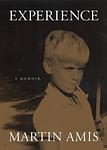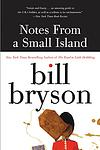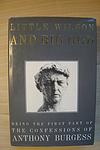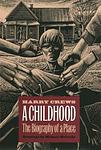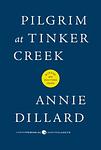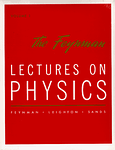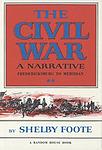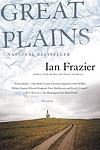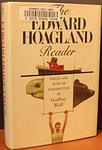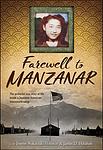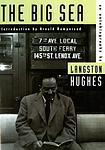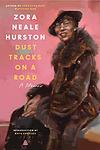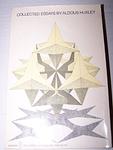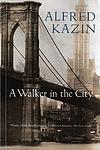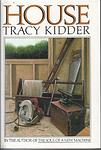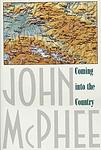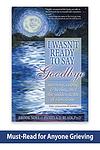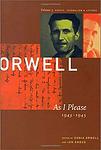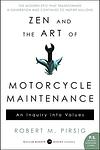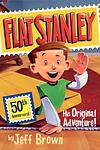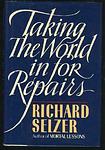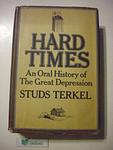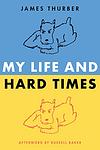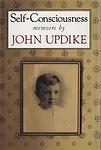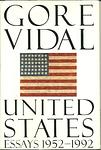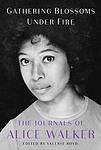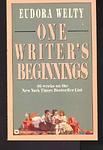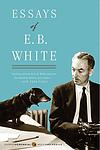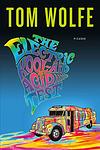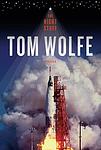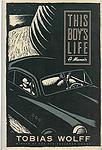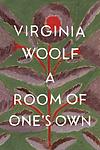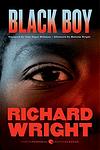100 Major Works of Modern Creative Nonfiction
This is one of the 284 lists we use to generate our main The Greatest Books list.
-
Desert Solitaire by Edward Abbey
Desert Solitaire is a collection of vignettes about life in the wilderness that reflects on the fierce beauty of the desert, the cruel indifference of nature, and the reckless destruction of the American West. The book, based on the author's experiences as a park ranger in Utah, explores the spiritual and philosophical dimensions of the desert environment, critiquing the commercialization and urbanization of the wild, and underscoring the importance of preserving natural landscapes.
-
Let Us Now Praise Famous Men by James Agee
This book is an in-depth examination of the lives of three tenant families in the South during the Great Depression. The author combines detailed descriptions, journalistic reporting, and poetic prose to capture the harsh realities of poverty, racial discrimination, and the struggle for survival. The book also includes evocative photographs that further illustrate the living conditions and daily lives of the families. The work is a profound exploration of the human condition, offering a raw and unflinching look at the effects of economic and social injustice.
-
Experience by Martin Amis
"Experience" is a memoir which delves into the author's life, exploring his relationships with his family, friends, and his own self. The narrative is a candid reflection on his father's influence, his friendships with other writers, his marriages, and his children. The author also discusses his experiences with fame, age, and loss, providing an intimate look into his personal and professional journey. The memoir is a blend of the author's unique humor, sharp observations, and poignant moments, offering a compelling and deeply personal narrative.
-
I Know Why the Caged Bird Sings by Maya Angelou
This memoir recounts the early years of an African-American girl's life, focusing on her experiences with racism and trauma in the South during the 1930s. Despite the hardships she faces, including sexual abuse, she learns to rise above her circumstances through strength of character and a love of literature. Her journey from victim to survivor and her transformation into a young woman who respects herself is a testament to the human capacity to overcome adversity.
-
Growing Up by Russell Baker
"Growing Up" is a memoir that recounts the author's experiences growing up in America during the Great Depression and World War II. The author shares his journey from a poverty-stricken childhood in Virginia to becoming a successful journalist in New York. The narrative is filled with engaging anecdotes about his family, particularly his strong-willed mother, and the struggles they faced during these challenging times. The memoir is an exploration of the author's family history, personal growth, and the socio-political landscape of mid-20th century America.
-
Notes of a Native Son by James Baldwin
This book is a collection of essays that vividly capture the author's life in Harlem, his travels in Europe, and his views on everything from the sweet music of black church revivals to the biting prejudice of the 'then' contemporary world. It's an exploration of racial, sexual, and class distinctions in both Western societies and the American society. The author's reflections on his experiences as a black man in white America are profoundly insightful and continue to resonate today.
-
Nothing to be Frightened Of by Julian Barnes
This book is a memoir that explores the author's fear of death and his quest for meaning in life. It blends elements of autobiography, philosophy, and literary criticism, drawing on the author's personal experiences, his relationships with his family, and his thoughts on writers and philosophers who have influenced him. The narrative is marked by the author's wit, humor, and keen observations, offering a thoughtful and engaging exploration of mortality and the human condition.
-
Untold Stories by Alan Bennett
"Untold Stories" is a collection of essays, diary entries, and recollections by a renowned playwright. It provides an insightful look into his life, experiences, and thoughts. The book is divided into two parts, with the first part focusing on his family history and the second part containing his personal reflections and observations about various topics, including art, architecture, and literature. It offers a unique perspective on the author's upbringing in Leeds and his later life in London, as well as his views on society and culture.
-
Recollected Essays by Wendell Berry
"Recollected Essays" is a collection of writings that explore the relationship between humans and the natural world. The author uses his unique perspective as a farmer and environmental activist to delve into topics such as agriculture, land conservation, and the importance of community in creating a sustainable future. The essays challenge readers to reconsider their own relationship with the environment and encourage a return to a more balanced, respectful interaction with the natural world.
-
Notes from a Small Island by Bill Bryson
This humorous travel memoir features an American author's journey across the United Kingdom, where he had lived for two decades. Before returning to the United States, he decides to tour the country, using public transportation and staying in small-town accommodations. The book provides an amusing, and at times sarcastic, outsider's perspective on British life, culture, and idiosyncrasies, while also expressing a deep affection for the nation and its people.
-
Little Wilson and Big God by Anthony Burgess
"Little Wilson and Big God" is the first volume of a two-part autobiography that covers the early life of a renowned British writer and composer. The book explores his upbringing in Manchester, his education, his service in the British Army during World War II, and his early career as an education officer in Malaya and Borneo. The narrative delves into his relationships, struggles with alcoholism, and his passion for music and literature, offering a deeply personal and revealing look into the formative years of a multifaceted artist.
-
The Hero with a Thousand Faces by Joseph Campbell
This book explores the theory that important myths from around the world which have survived for thousands of years all share a fundamental structure, which the author calls the "monomyth." It outlines the stages of this monomyth, which include a hero's call to adventure, a descent into the underworld, and a triumphant return. The book also discusses how these universal patterns can provide a framework for understanding human experience and the world around us.
-
In Cold Blood by Truman Capote
This true crime novel tells the story of the brutal 1959 murder of a wealthy farmer, his wife and two of their children in Holcomb, Kansas. The narrative follows the investigation led by the Kansas Bureau of Investigation that ultimately leads to the capture, trial, and execution of the killers. The book explores the circumstances surrounding this horrific crime and the effects it had on the community and the people involved.
-
Silent Spring by Rachel Carson
This influential environmental science book presents a detailed and passionate argument against the overuse of pesticides in the mid-20th century. The author meticulously describes the harmful effects of these chemicals on the environment, particularly on birds, hence the metaphor of a 'silent spring' without bird song. The book played a significant role in advancing the global environmental movement and led to a nationwide ban on DDT and other pesticides in the United States.
-
The Water Is Wide by Pat Conroy
"The Water Is Wide" is a memoir that details the author's experiences as a young, idealistic teacher on Yamacraw Island, a predominantly Black community off the coast of South Carolina. He is shocked by the lack of resources and the poor educational standards of the school, and he embarks on a mission to provide the children with a proper education. However, his unconventional teaching methods and attempts to introduce the children to the wider world are met with resistance from the school's administration and the island's isolationist attitudes.
-
A Childhood: The Biography of a Place by Harry Crews
This book is a memoir of the author's early years in Bacon County, Georgia, during the Great Depression. It details his life in a poverty-stricken, rural community, exploring themes of hardship, resilience, and the human spirit. Despite the harsh circumstances, the author also recounts moments of joy and beauty, offering a vivid and compelling portrait of his childhood and the place that shaped him.
-
We Tell Ourselves Stories in Order to Live: Collected Nonfiction by Joan Didion
This book is a compilation of seven works of nonfiction that explore the themes of American culture, politics, and landscape. The author's sharp observational skills and distinctive narrative voice provide insightful commentary on a range of topics, from the counterculture of the 1960s to the breakdown of the nuclear family. Her essays are deeply personal, often reflecting on her own experiences and emotions, while also offering a broader critique of society. The collection is a testament to the power of storytelling, both in shaping our understanding of the world and in helping us navigate through life.
-
The Year of Magical Thinking by Joan Didion
This book is a raw and honest exploration of grief and mourning, written by a woman who lost her husband of 40 years to a heart attack while their only child lay comatose in the hospital. The narrative delves into the year following her husband's death, a year marked by grief, confusion, and a desperate hope for things to return to normal. The author's poignant reflections on death, love, and loss serve as a powerful testament to the resilience of the human spirit.
-
An American Childhood by Annie Dillard
The memoir provides a vivid portrayal of the author's early years growing up in 1950s Pittsburgh, capturing the joys, challenges, and awakenings of childhood with lyrical prose and keen observations. Through a series of anecdotes and reflections, it explores the development of a young person's mind as she navigates family dynamics, social norms, and her burgeoning passion for nature and literature. The narrative is as much an ode to the innocence and curiosity of youth as it is a contemplation of the process of self-discovery and the formative experiences that shape our understanding of the world and our place within it.
-
Pilgrim at Tinker Creek by Annie Dillard
This book is a personal narrative of the author's explorations near her home at Tinker Creek in Virginia's Blue Ridge Mountains. The narrative is filled with detailed observations on nature and philosophical musings. It reflects on themes of solitude, the presence of God in nature, and the interconnectedness of life. The author's deep reflections and contemplations about the mysteries and beauty of the world make it a profound meditation on the natural world.
-
Nickel And Dimed by Barbara Ehrenreich
The book is a firsthand journalistic account of the author's experiment to survive on minimum wage jobs in America. She gives up her middle-class life to understand the reality of low-wage workers, working as a waitress, a hotel maid, a cleaning woman, a nursing home aide, and a retail chain employee. The book reveals the harsh and often overlooked conditions of the working poor, highlighting the struggle to afford even basic necessities, the lack of job security, and the physical toll of such work.
-
The Solace of Open Spaces by Gretel Ehrlich
This book is a collection of essays that explore the author's experiences and observations after moving from the city to the rural landscapes of Wyoming. The narrative delves into the harsh and beautiful realities of living in the American West, the author's personal healing after a tragic loss, and the solace found in the vast open spaces. The book is a profound meditation on nature, solitude, grief, resilience, and the transformative power of landscape.
-
The Immense Journey by Loren Eiseley
"The Immense Journey" is a collection of essays that explore the wonders and mysteries of nature and human existence. The author, a renowned anthropologist, shares his insights and reflections on evolution, the cosmos, and the interconnectedness of all living things. Through vivid storytelling and poetic prose, he takes readers on a journey from the microscopic world of a single cell to the vast expanses of space, revealing the profound beauty and complexity of the natural world.
-
Shadow and ACT by Ralph Ellison
This book is a collection of essays that explore the complexities of racial identity and the cultural and social issues surrounding it. The author delves into his own experiences as an African American man in the mid-20th century, offering a poignant commentary on the racial divide in America. He also discusses the role of literature and music, particularly jazz, in shaping identity and understanding. The book is a thoughtful examination of the intersection of individual identity and societal expectations.
-
Crazy Salad: Some Things about Women by Nora Ephron
This book is a collection of essays that provide a humorous and insightful commentary on women's issues during the 1970s. The author discusses a variety of topics, from the feminist movement and the pill, to the influence of media on women's body image, to her own personal experiences and observations. The book offers a unique and witty perspective on the complexities of being a woman in modern society.
-
Snobbery: The American Version by Joseph Epstein
"Snobbery: The American Version" is a sociocultural analysis that delves into the nature of American snobbery, its origins, and how it manifests in various aspects of society including fashion, academia, politics, and wealth. The author argues that despite America's democratic ideals and claims of equality, snobbery is deeply ingrained in its culture and people, often subtly influencing their attitudes, behaviors, and social interactions. The book also explores the psychological aspects of snobbery, discussing how it affects both the snobs and those subjected to their attitudes.
-
The Feynman Lectures on Physics by Richard P. Feynman
This book is a comprehensive collection of lectures on physics by a renowned physicist, covering everything from classical mechanics to quantum mechanics, electromagnetism, and statistical mechanics. These lectures, designed to be accessible to those without a deep background in the subject, offer a unique and insightful perspective on the fundamental principles of physics, combining rigorous scientific explanation with engaging anecdotes and analogies. The book is widely regarded as an essential resource for anyone interested in or studying the field of physics.
-
The Civil War by Shelby Foote
This comprehensive three-volume series provides an in-depth and detailed narrative of the American Civil War. It encompasses the political, social, and military aspects of the war, offering a balanced view of both the Union and Confederate sides. The series also delves into the personal experiences of key figures, including generals and soldiers, as well as civilians affected by the war. This work is known for its meticulous research, vivid descriptions, and engaging storytelling style.
-
Great Plains by Ian Frazier
"Great Plains" is a travelogue that takes readers on a journey through the vast expanse of the American Great Plains, exploring its history, geography, and culture. The author travels from North Dakota to Texas, delving into the history of Native Americans, pioneers, and outlaws. The book provides a detailed account of the region, its people, and its significance in shaping the American West, offering a vivid portrait of the landscape and its influence on the country's identity.
-
The Great War and Modern Memory by Paul Fussell
"The Great War and Modern Memory" is a critical analysis of the impact of World War I on the English society and culture. The author explores the war's influence on literature, language, and symbolism, arguing that the horrific experiences of the war drastically altered public perception and understanding of conflict, honor, and heroism. The book combines literary criticism, history, and social commentary to provide a comprehensive examination of the war's lasting effects on the collective memory of the English-speaking world.
-
Ever Since Darwin: Reflections in Natural History by Stephen Jay Gould
This book is a collection of essays that explore the theory of evolution and its implications in natural history. The author uses his expertise in paleontology and evolutionary biology to discuss various topics such as human evolution, the science of classifying organisms, and the role of cataclysmic events in the history of life. The essays also delve into the relationship between science and religion, the nature of scientific progress, and the misuse of biological theories in social ideologies. Throughout the book, the author emphasizes that evolution is not a linear process, but a complex interplay of chance, necessity, and history.
-
Good-Bye to All That by Robert Graves
This memoir provides a candid and unflinching look at the horrors of World War I, as experienced by a young British officer. The narrative explores the brutality and futility of war, the author's struggle with shell shock, his disillusionment with the military and British society, and his decision to leave England for a new life abroad. It also offers insights into the author's personal life, including his troubled marriage and his relationships with other prominent figures of the time.
-
The Autobiography of Malcolm X by Alex Haley
This book is an autobiography narrating the life of a renowned African-American activist. It delves into his transformation from a young man involved in criminal activities to becoming one of the most influential voices in the fight against racial inequality in America. The book provides a deep insight into his philosophies, his time in prison, conversion to Islam, his role in the Nation of Islam, his pilgrimage to Mecca, and his eventual split from the Nation. It also addresses his assassination, making it a powerful account of resilience, redemption, and personal growth.
-
A Drinking Life: A Memoir by Pete Hamill
This memoir explores the author's life from childhood to adulthood, focusing on his experiences with alcohol. Growing up in a working-class Irish American family in Brooklyn, the author was introduced to drinking at a young age and it became a significant part of his identity. Through his journey, he reflects on how alcohol influenced his relationships, career as a journalist, and personal life, leading to his decision to quit drinking at the age of 37. The book provides a candid look at the culture of drinking and its impact on individuals and families.
-
Moveable Feast by Ernest Hemingway
This memoir offers a glimpse into the life of a young American writer living in Paris during the 1920s. The book is filled with personal anecdotes and observations about his life and experiences, including his relationships with other expatriate writers and artists of the Lost Generation. The focus is on the joy of life, the art of writing, and the struggle of a writer. The book also explores the author's love for the city of Paris, which he refers to as a "moveable feast".
-
Dispatches by Michael Herr
This book is a first-hand account of the Vietnam War from a war correspondent's perspective. The author vividly describes the chaos, violence, and absurdity of the war, providing a raw and unfiltered look at the experiences of soldiers on the ground. The narrative is filled with gritty details and intense imagery, capturing the fear, boredom, and disillusionment that characterized the war. The book is considered a classic of war reportage, lauded for its honest and brutal portrayal of the realities of combat.
-
Hiroshima by John Hersey
This book provides a detailed account of the aftermath of the atomic bombing of Hiroshima during World War II, as experienced by six survivors. The narrative follows the survivors from the moment of the explosion to their lives in the following years. It explores their struggles, their resilience, and the profound physical, emotional, and social impacts of the event, offering a poignant examination of the human capacity to endure and rebuild in the face of unimaginable devastation.
-
Unbroken: A World War II Story of Survival, Resilience, and Redemption by Laura Hillenbrand
This book is a gripping true story of a WWII veteran, who was an Olympic runner before the war. His plane crashes in the Pacific during a reconnaissance mission, and he survives for 47 days on a raft, only to be captured by the Japanese Navy and sent to a series of brutal prisoner of war camps. Despite the immense suffering, he remains unbroken, maintaining his dignity and hope, and eventually finds redemption after the war.
-
The Edward Hoagland Reader by Edward Hoagland
This collection of works by a highly acclaimed essayist offers a diverse range of topics, from nature and wildlife to city life and social issues. The author's keen observations and descriptive prose provide a deep and thoughtful insight into the complexities of the world around us, drawing readers into a variety of environments and situations. Whether exploring the wilderness or the human condition, the author's unique voice and perspective shine through, making this a compelling read for those who appreciate thoughtful, well-crafted essays.
-
The True Believer by Eric Hoffer
"The True Believer" is a philosophical analysis of the nature of mass movements and the people who constitute them. The book argues that regardless of the specific cause, whether it be religious, political, or social, all mass movements are interchangeable and their followers are essentially the same. The author suggests that the driving force behind these movements is not the ideology itself, but rather the personal dissatisfaction and frustration of the individuals involved. The book also explores the lifecycle of mass movements, from their creation to their eventual dissolution.
-
Anti-intellectualism in American Life by Richard Hofstadter
This book is a critical examination of the historical trend of anti-intellectualism in American society from the 19th century to the 1960s. The author explores how this disdain for intellectual pursuits and glorification of practical skills has influenced various aspects of American life including politics, business, education, and religion. The book also analyzes the roots of this phenomenon, linking it to populist movements, religious fundamentalism, and the American suspicion of elites and expertise.
-
Farewell to Manzanar by Jeanne Wakatsuki Houston, James D. Houston
"Farewell to Manzanar" is a memoir that tells the story of a Japanese-American family's experiences in internment camps during World War II. The narrative follows the young protagonist as she grows up in the camps, dealing with the harsh realities of racial prejudice and forced displacement. The memoir offers a deeply personal and poignant perspective on a dark period in American history, highlighting the resilience, strength, and dignity of the human spirit in the face of adversity.
-
The Big Sea by Langston Hughes
"The Big Sea" is an autobiography that explores the life of a significant figure in the Harlem Renaissance. The narrative follows his early life in the Midwest, his travels around the world as a seaman, and his experiences in New York during the 1920s, where he was a central figure in the Harlem Renaissance. Throughout the book, the author offers his observations on racism, class, and the creative process, providing a vivid and insightful portrait of a complex era in American history.
-
Dust Tracks on a Road: An Autobiography by Zora Neale Hurston
"Dust Tracks on a Road" is an autobiography that delves into the life of a prominent African American woman who grew up in the rural South during the early 20th century. She discusses her struggles and triumphs as she navigates through racial discrimination, gender bias, and her rise to fame as a renowned writer and anthropologist. The book provides an insightful look into the author's perspective on race, gender, and identity, offering a unique and personal view of the African American experience during a time of significant social and cultural change.
-
Collected essays by Aldous Huxley
This collection of essays explores a wide range of topics, from art and democracy to faith and morality. The author draws on his vast knowledge of literature, philosophy, and science to delve deep into each subject, offering insightful commentary and observations. His writing style is both eloquent and accessible, making complex ideas understandable to the general reader. These essays serve as a reflection of the author's worldview and his deep intellectual curiosity.
-
Reliable Essays: The Best of Clive James by Clive James
This book is a collection of essays from a renowned critic, covering a wide range of topics from television to literature and reflecting his sharp wit and insightful observations. The author's unique voice shines through in each piece, whether he's discussing the state of modern television or the nuances of a particular piece of literature. His commentary is both thought-provoking and entertaining, making this collection a must-read for fans of cultural criticism.
-
A Walker in the City by Alfred Kazin
This memoir explores the author's experiences growing up as a Jewish child in the Brownsville neighborhood of Brooklyn during the 1920s and 1930s. The narrative delves into his relationship with his family, his Jewish identity, his love for literature, and his observations about the changing urban landscape. As he walks through his old neighborhood as an adult, he reflects on the past, creating a vivid and emotional portrait of his childhood and the immigrant experience in New York City.
-
House by Tracy Kidder
"House" is an in-depth exploration of the process of building a home from the ground up. The book follows the journey of a young couple as they work with an architect and a team of builders to construct their dream house. The narrative delves into the intricate details of construction, the complexities of the interpersonal relationships involved, and the emotional rollercoaster that comes with creating a home. It's a unique perspective on the American dream of homeownership.
-
The Woman Warrior: Memoirs of a Girlhood Among Ghosts by Maxine Hong Kingston
This memoir explores the life of a first-generation Chinese-American woman, navigating the complexities of her dual heritage. Through five interconnected stories, the book delves into the author's childhood experiences, her mother's tales of old China, and the struggles of reconciling these two worlds. The memoir is a blend of reality and mythology, illustrating the author's struggle with her identity, the expectations of her traditional Chinese family, and the challenges of growing up in a predominantly white American society.
-
The Structure of Scientific Revolutions by Thomas Kuhn
This influential book examines the history of science, focusing on the process of scientific revolutions. The author argues that scientific progress is not a linear, continuous accumulation of knowledge, but rather a series of peaceful interludes punctuated by intellectually violent revolutions. During these revolutions, known as paradigm shifts, the old scientific worldview is replaced by a new one. The book also popularized the term 'paradigm shift' and challenged the previously accepted view of science as a steadily progressive discipline.
-
Blue Highways: A Journey into America by William Least Heat-Moon
This travel memoir follows the author's journey through the backroads of the United States, which he refers to as "Blue Highways" on maps. After losing his job and separating from his wife, he embarks on a 14,000-mile trip, steering clear of cities and interstates to explore small towns and meet their inhabitants. The narrative offers a poignant and introspective exploration of America's landscapes, history, and diverse cultures, providing a unique perspective on the country's lesser-known regions.
-
Enthusiasms by Bernard Levin
"Enthusiasms" is a collection of essays that explore the author's passions and interests in a wide range of topics, from music and literature to food and travel. The author's witty and eloquent writing style brings these subjects to life, providing readers with a unique and insightful perspective. Whether discussing the joys of opera, the complexities of politics, or the simple pleasure of a good meal, these essays reflect the author's deep love and appreciation for the world and its endless variety.
-
Arctic Dreams by Barry Lopez
"Arctic Dreams" is a comprehensive exploration of the Arctic region, its landscapes, wildlife, and indigenous cultures. The author combines his personal experiences from his time spent in the Arctic with historical, scientific, and anthropological insights, providing readers with a profound understanding of this remote and often misunderstood region. The book also discusses the impact of climate change on the Arctic and its implications for the rest of the world.
-
Truman by David McCullough
This biography offers an in-depth examination of the life and presidency of Harry S. Truman, the 33rd President of the United States. The book covers his humble beginnings in Missouri, his service in World War I, his political ascension, and his unexpected presidency following the death of Franklin D. Roosevelt. The narrative also delves into his controversial decisions such as the use of atomic bombs on Japan and his handling of the Cold War, providing a comprehensive and balanced view of Truman's leadership and legacy.
-
Masscult and Midcult: Essays Against the American Grain by Dwight Macdonald
"Masscult and Midcult: Essays Against the American Grain" is a collection of critical essays that explore the impact of mass culture and middlebrow culture on American society. The author argues that these two cultural phenomena have diluted the quality of high art and intellectual thought, leading to a homogenization of culture and a decline in individual creativity and critical thinking. The book provides a thought-provoking critique of American cultural and intellectual life, offering insights into the ways in which mass media and popular culture shape our perceptions and values.
-
Coming into the Country by John McPhee
This book provides an in-depth exploration of Alaska, its wilderness, and the people who inhabit it. The narrative is divided into three parts, detailing the urban, rural, and wilderness areas of the state. It offers a comprehensive look at the unique challenges and lifestyle of Alaskans, the state's history, and its potential future. The author's vivid descriptions and personal interviews provide an intimate and realistic portrayal of life in one of the most remote areas of the United States.
-
Whoredom in Kimmage by Rosemary Mahoney
"Whoredom in Kimmage" is a nuanced exploration of the lives of contemporary Irish women. The author, through her personal experiences and interactions, presents an intimate portrayal of Irish society, focusing on the women she encounters in Dublin and in the small town of Kimmage. The narrative provides an in-depth understanding of the changing roles of women in Ireland, their struggles, aspirations, and the societal expectations they navigate. It also delves into the world of women's Gaelic sports, offering a unique perspective on gender dynamics in Ireland.
-
The Armies of the Night by Norman Mailer
This book is a unique blend of historical fact and autobiographical fiction, providing a detailed account of the October 1967 March on the Pentagon. It describes the author's experiences during the anti-Vietnam War demonstrations, where he was arrested and spent the night in jail. The narrative explores the author's interactions with other protesters, his observations on the nature of political activism, and his personal reflections on the Vietnam War. It also delves into the author's struggles with his personal beliefs and his role as a public figure during this turbulent period in American history.
-
The Snow Leopard by Peter Matthiessen
"The Snow Leopard" is a travelogue that recounts the author's two-month journey in the Himalayas with naturalist George Schaller. The duo trek through the rugged and remote mountains of Nepal on a quest to study the rare blue sheep and possibly spot the elusive snow leopard. The book is as much a spiritual journey as it is a physical one, with the author seeking solace and understanding following the death of his wife. The narrative explores themes of grief, nature, and Buddhism, offering a poignant and introspective look at life and loss.
-
Mencken Chrestomathy by H. L. Mencken
This book is a compilation of the author's best and most representative writings, meticulously selected by the author himself. It covers a wide range of topics, including social issues, literature, and politics, offering a unique and insightful perspective on American culture. The author's sharp wit, sarcasm, and insightful critiques of society's follies and absurdities make this book a fascinating read.
-
Up in the Old Hotel by Joseph Mitchell
"Up in the Old Hotel" is a collection of essays that paints a vivid picture of New York City from the 1930s to the 1960s. The stories introduce a rich tapestry of characters, from street preachers and gypsies to oystermen and bar regulars, each with their own unique history and perspective. The book captures the essence of the city and its inhabitants in a way that is both deeply personal and universally relatable, providing an intimate look at a bygone era.
-
The American Way of Death by Jessica Mitford
This book is a critical examination of the funeral industry in the United States. The author explores the various ways in which the industry exploits the grief and vulnerability of the bereaved to upsell expensive services and merchandise, often with little regard for the actual needs or desires of the deceased or their loved ones. She also delves into the cultural and societal norms around death and burial in America, questioning their origins and the extent to which they are perpetuated by the industry for profit.
-
The Names by N. Scott Momaday
"The Names" is a memoir that explores the author's Native American heritage and identity through a series of personal and family anecdotes, historical events, and tribal stories. The narrative unfolds in chronological order, starting with the author's ancestors and ending with his own life, providing a deep understanding of his Kiowa roots and the importance of names in their tradition. The book also touches on the themes of memory, history, and the power of language.
-
The City in History by Lewis Mumford
"The City in History" explores the development of urban life over the course of history. The author provides a comprehensive evaluation of cities from ancient times to the modern era, examining their architectural, social, political, economic, and cultural aspects. The book also offers a critique of the urbanization process, highlighting its negative impact on human life and the environment, while advocating for a human-centered approach to urban planning.
-
Speak, Memory by Vladimir Nabokov
"Speak, Memory" is an autobiographical memoir that explores the author's life from his birth in 1899 to his emigration to the United States in 1940. The narrative details his privileged childhood in Russia, his experiences during the Russian Revolution, his time in Europe as an émigré, and his career as a writer and scholar. The book is noted for its intricate descriptions, its exploration of the nature of memory, and its intricate linguistic play.
-
Parliament of Whores by P. J. O'Rourke
This non-fiction book is a humorous and critical examination of American politics, specifically focusing on the United States government. The author delves into various aspects of the government, including Congress, the budget, and the political culture of Washington, D.C. He uses satire and wit to highlight the inefficiencies, absurdities and corruption he perceives in the system, offering a cynical view of the way the American government operates.
-
My Kind of Place by Susan Orlean
This book is a collection of travel stories that take readers to a variety of fascinating locations around the world. The author's unique perspective and storytelling ability bring each location to life, whether it's a high-stakes poker tournament in Las Vegas, a taxidermy convention, or a small town in Africa. The book explores the peculiarities and charms of each place, focusing not just on the locations themselves, but also on the people who inhabit them. The author's sense of curiosity and adventure is infectious, making this a compelling read for anyone interested in travel and exploration.
-
Down and Out in Paris and London by George Orwell
This book is a semi-autobiographical work that explores the harsh realities of poverty in two of Europe's most renowned cities. The protagonist, a struggling writer, first experiences the squalor, hardship, and vagabond lifestyle of Paris, where he works menial jobs and often goes hungry. The narrative then shifts to London, where the protagonist lives as a tramp, navigating the oppressive rules of homeless shelters and the stigma of poverty. The book is a deeply empathetic and insightful exploration of the often invisible world of the impoverished.
-
Collected Essays of George Orwell by George Orwell
This book is a compilation of essays by a renowned author, known for his sharp wit and critical eye. It covers a wide range of topics, from politics and language to literature and culture. The author's insightful and often provocative viewpoints provide a unique perspective on the world, challenging readers to question their own beliefs and assumptions. His straightforward writing style and keen observations make these essays as relevant today as when they were first published.
-
Metaphor and Memory by Cynthia Ozick
In "Metaphor and Memory," the author presents a collection of essays that delve into the intricacies of literature, the power of metaphor, and the significance of memory in shaping human experience and creativity. The work explores the intersection of these themes within the context of Jewish history and identity, literary criticism, and the broader cultural landscape. Through incisive analysis and eloquent prose, the author examines how writers use metaphor to capture the essence of memory, both personal and collective, and how these elements are woven into the fabric of storytelling to illuminate deeper truths about society, morality, and the human condition.
-
Zen and the Art of Motorcycle Maintenance by Robert M. Pirsig
The book is a philosophical novel that explores the protagonist's journey across the United States on a motorcycle with his son, during which he delves into questions about life, philosophy, and the nature of "Quality". The narrative is interspersed with flashbacks to the protagonist's life before the journey, including his time as a university professor and his struggle with mental illness. The book aims to reconcile the dichotomy between classical and romantic understandings of the world, ultimately arguing for a holistic approach that integrates both perspectives.
-
Hunger of Memory by Richard Rodriguez
"Hunger of Memory" is a memoir that explores the complexities of assimilation and cultural identity. The author recounts his journey as a child of Mexican immigrants growing up in America, detailing his struggles to balance his Mexican heritage with his American surroundings. From learning English in a Roman Catholic school to earning a PhD from an Ivy League university, the author grapples with feelings of alienation and the loss of his private identity, prompting a deep examination of what it means to be an "American."
-
Picture by Lillian Ross
This book provides an in-depth look into the Hollywood movie-making process during the 1950s. It follows the creation of a major motion picture from its initial conception to its final execution, offering a detailed account of the challenges and triumphs encountered along the way. The author uses her unprecedented access to the movie set and production team to offer readers a behind-the-scenes view of the industry, revealing the complexities and intricacies of the film-making process.
-
Me Talk Pretty One Day by David Sedaris
This book is a collection of humorous, autobiographical essays that explore the author's experiences and observations in his life. The first part of the book focuses on his upbringing in North Carolina, his Greek heritage, his relationship with his eccentric family, and his early jobs. The second part of the book details his move to Normandy, France, his struggle to learn the French language, and his observations of French culture. The author's self-deprecating humor and sharp wit provide a satirical view of his life's journey.
-
Taking the World in for Repairs by Richard Selzer
"Taking the World in for Repairs" is a collection of short stories that explore the human condition through a variety of lenses. The author, a surgeon, uses his medical background to delve into the complexities of life and death, love and loss, and the inherent beauty and tragedy of the human experience. Each story offers a unique perspective on life's most profound questions, providing readers with thought-provoking insights into the nature of humanity.
-
Changing My Mind: Occasional Essays by Zadie Smith
"Changing My Mind: Occasional Essays" is a collection of essays that explores a wide range of topics, from literature and film to politics and culture. The author shares her thoughts and insights on these subjects, often through the lens of her personal experiences and observations. The book offers a glimpse into the author's mind, showcasing her intellectual curiosity, critical thinking skills, and unique perspective on the world.
-
Against Interpretation by Susan Sontag
This book is a collection of essays that challenge the traditional methods of interpretation and criticism of art and culture. The author argues that in our attempt to interpret and find deeper meaning, we often overlook the sensory experience of the work itself. The book encourages readers to experience art in its raw form, focusing on the form, color, and sounds, rather than trying to decipher a hidden meaning. It is a call for a new, more direct approach to consuming art and culture.
-
Travels with Charley by John Steinbeck
This novel is a travelogue of an aging man and his poodle, Charley, as they embark on a road trip across America. The man, a noted author, seeks to rediscover his country and its people, using the journey as a means to reflect on his life and the changing world around him. It is a poignant exploration of the American landscape, its diverse inhabitants, and the nature of travel and self-discovery.
-
Hard Times: An Oral History of the Great Depression by Studs Terkel
This book is a compelling oral history of the Great Depression, featuring a collection of interviews from a diverse range of individuals who lived through the era. The interviewees include both the ordinary people and famous figures of the time, from businessmen and politicians to artists and criminals. The book provides a vivid, first-hand account of the economic hardship, social changes, and emotional struggles experienced by people during the 1930s, offering a unique perspective on this significant period in American history.
-
The Lives of a Cell by Lewis Thomas
This book is a collection of 29 essays that explore the world of science and biology, providing insights into the interconnectedness of life on Earth. The author uses metaphors and analogies to explain complex scientific concepts, such as the similarities between Earth and a single cell. The essays cover a wide range of topics, including the behavior of bacteria, the possibility of life on other planets, and the role of language in human evolution. The book emphasizes the importance of understanding and respecting the complexity and beauty of life.
-
The Making of the English Working Class by E. P. Thompson
This book is a comprehensive historical analysis of the formation of the English working class from the late 18th century to the mid-19th century. The author meticulously examines various aspects of society including the Industrial Revolution, the rise of Methodism, and political movements, arguing that the working class was not a byproduct of economic factors alone, but was actively self-formed through struggles over issues like workers' rights and political representation. The book is widely regarded as a seminal text in social history due to its focus on the experiences and agency of ordinary people.
-
Fear and Loathing in Las Vegas: A Savage Journey to the Heart of the American Dream by Hunter S. Thompson
This book is a semi-autobiographical novel that chronicles the adventures of a journalist and his attorney as they embark on a drug-fueled trip to Las Vegas. The narrative is a wild and hallucinatory exploration of the American Dream, filled with biting social commentary and outrageous antics. The protagonist's quest for the American Dream quickly devolves into an exploration of the darker side of human nature, highlighting the excesses and depravities of 1960s American society.
-
My Life and Hard Times by James Thurber
This book is a humorous, semi-autobiographical work detailing the author's experiences growing up in Columbus, Ohio. The narrative is filled with eccentric family members, absurd situations, and unusual encounters. The author's vivid imagination, wit, and unique perspective on life transform mundane events into memorable, comedic episodes. From his grandmother's belief that the Civil War is still ongoing to his own fear of electricity, the author's life and hard times are presented as a series of amusing anecdotes that offer a refreshing and entertaining perspective on American life in the early 20th century.
-
The Liberal Imagination by Lionel Trilling
"The Liberal Imagination" is a collection of essays that scrutinize and challenge the ideas, politics, and cultural norms of liberal society. The author argues that liberalism often simplifies complex issues and overlooks the inherent contradictions and conflicts in human life. Using literature as a tool, he delves into the nuances of these issues and encourages readers to engage in critical thinking and self-examination. The book is a profound exploration of the strengths and weaknesses of liberal thought and its impact on society.
-
The Guns of August by Barbara Tuchman
"The Guns of August" is a detailed and engaging account of the first month of World War I. The book explores the events leading up to the war, the political and military strategies of the various countries involved, and the critical decisions that shaped the course of the conflict. It presents a vivid picture of the war's early stages, highlighting the miscalculations, miscommunications, and misunderstandings that led to one of the most devastating wars in history.
-
Self-Consciousness by John Updike
"Self-Consciousness" is a memoir that delves into the personal life of a renowned author, exploring his childhood, his relationship with his parents, his struggles with psoriasis and stuttering, as well as his religious beliefs and views on death. The author's reflections on his life are deeply personal, introspective, and filled with a sense of vulnerability, providing an intimate look into his experiences and thought processes. The book offers an insightful exploration of the author's self-consciousness and how it has shaped his life and work.
-
United States: Essays 1952-1992 by Gore Vidal
This book is a collection of essays written over a 40-year period, providing an insightful commentary on the political, historical, and cultural landscape of the United States. The author's sharp wit and incisive analysis are evident as he discusses a wide range of topics, from literature and the arts to politics and public life. His observations on American society, its leaders, and its institutions offer a critical perspective on the evolution of the nation during the second half of the 20th century.
-
The Wordy Shipmates by Sarah Vowell
"The Wordy Shipmates" is a historical narrative that explores the journey and lives of the Massachusetts Bay Colonists, who left England in the 1630s in pursuit of religious freedom in America. The book delves into the paradoxes of these Puritans, who were both freedom seekers and authoritarians, and their influence on American identity. It also provides a detailed look at their relationships, conflicts, and the hardships they faced, all set against the backdrop of their religious and political beliefs.
-
In Search of Our Mothers' Gardens: Prose by Alice Walker
This book is a compilation of essays that explores the struggle of African American women throughout history, as well as the author's personal journey as a writer. The author uses the metaphor of a garden to represent the creative spirit of African American women, which was often suppressed or ignored due to racial and gender discrimination. The essays discuss a wide range of topics, including civil rights, literature, and the author's own experiences, providing a powerful examination of African American women's history and culture.
-
A Supposedly Fun Thing I'll Never Do Again by David Foster Wallace
"A Supposedly Fun Thing I'll Never Do Again" is a collection of seven essays that blends humor, insight, and philosophical pondering. The author explores a wide range of topics, from the impact of television on contemporary literature to the despair of the American cruise industry, and even the nature of David Lynch's films. The book is a brilliant showcase of the author's unique ability to see the extraordinary in the ordinary, all while using his sharp wit and expansive intellect to explore the complexities of modern life.
-
The Double Helix: A Personal Account of the Discovery of the Structure of DNA by James D. Watson
This book is a personal account of the race to discover the structure of DNA, told from the perspective of one of the co-discoverers. It provides an insider's view of scientific research, the collaboration and competition, the dedication, the doubt, the exhilaration of discovery, and the often fraught relationship between science and the rest of life. The book also explores the personalities, quirks, and conflicts of the scientists involved in the groundbreaking discovery.
-
One Writer's Beginnings by Eudora Welty
This memoir explores the author's early life in Mississippi and her journey towards becoming a writer. The narrative is divided into three sections: Listening, Learning to See, and Finding a Voice, which respectively discuss the author's childhood memories, her education and love for reading, and her growth as a writer. The book delves into the author's personal experiences, her family history, and the influence of the Southern United States on her work.
-
Essays of E. B. White by E. B. White
This book is a collection of essays written by a renowned American writer, offering a wide range of topics including nature, politics, literature, and personal experiences. The author's distinct style of writing, characterized by wit, humor, and profound insight, is evident throughout the book. The essays serve as a reflection of the author's thoughts and observations about life, society, and the world, providing readers with an intimate look into his mind and perspective.
-
One Man's Meat by E. B. White
This collection of essays is a charming and insightful chronicle of the author's experiences and observations while living on a farm in Maine during World War II. Filled with humor and wisdom, the essays cover a wide range of topics, from the challenges of raising livestock and growing crops, to reflections on nature, literature, and the changing seasons. The author's thoughtful and poetic writing provides a unique perspective on rural life and the human condition.
-
The Warmth Of Other Suns by Isabel Wilkerson
"The Warmth of Other Suns" is a powerful and deeply moving narrative that chronicles the Great Migration, a significant event in American history that saw millions of African Americans leave the South in search of better opportunities and freedom from racial oppression. Through the compelling stories of three individuals, the book explores the challenges, triumphs, and sacrifices made by these courageous migrants as they embarked on a journey to find a new life in the North and West, ultimately reshaping the social and cultural landscape of America.
-
The Electric Kool-Aid Acid Test by Tom Wolfe
The book follows the psychedelic adventures of Ken Kesey and his band of Merry Pranksters as they traverse the United States in a painted bus, hosting "Acid Test" parties where attendees are given LSD. The narrative is a vivid exploration of the burgeoning counterculture of the 1960s, capturing the spirit of the era through the lens of this eccentric group and their hallucinogenic experiences. It's a seminal work of New Journalism, blending reportage with literary techniques to create a highly subjective, immersive account of the Pranksters' journey.
-
The Right Stuff by Tom Wolfe
"The Right Stuff" is a non-fiction novel that explores the lives and experiences of the first Project Mercury astronauts selected for the NASA space program in the 1960s. The book delves into the personal and professional lives of these astronauts, highlighting their courage, competitiveness, and the immense pressure they faced. It also provides a detailed account of the space race between the United States and the Soviet Union during the Cold War era.
-
This Boy's Life by Tobias Wolff
This memoir explores the author's challenging childhood as he moves across the country with his divorced mother, fleeing an abusive relationship and seeking a better life. The young boy struggles with his identity, often resorting to lies and deceit to create a more favorable image of himself. As he navigates adolescence in a small town in the 1950s, he contends with a violent stepfather, school troubles, and his own rebellious nature. Despite the adversity, he maintains a sense of hope and resilience, offering a compelling portrait of a young man coming of age in post-war America.
-
A Room of One's Own by Virginia Woolf
This book is an extended essay that explores the topic of women in fiction, and the societal and economic hindrances that prevent them from achieving their full potential. The author uses a fictional narrator and narrative to explore the many difficulties that women writers faced throughout history, including the lack of education available to them and the societal expectations that limited their opportunities. The central argument is that a woman must have money and a room of her own if she is to write fiction.
-
Black Boy by Richard Wright
"Black Boy" is an autobiographical account of a young African-American boy growing up in the South during the early 20th century. The book explores his experiences with extreme poverty, racism, and his struggle to find his place in a society that marginalizes and devalues him. The protagonist's desire for self-expression and understanding leads him to a love of literature and writing, providing him with a means to challenge and critique the oppressive social structures around him.
ThoughtCo, 100 Books
Essays, memoirs, autobiographies, biographies, travel writing, history, cultural studies, nature writing—all of these fit under the broad heading of creative nonfiction, and all are represented in this list of 100 major works of creative nonfiction published by British and American writers over the past 90 years or so. They're arranged alphabetically by author last name.
Added about 1 year ago.
This list has a weight of 42%. To learn more about what this means please visit the Rankings page.
Here is a list of what is decreasing the importance of this list:
- Voters: no voter information
- List: only covers 1 specific language
- List: only covers 100 years
If you think this is incorrect please e-mail us at [email protected].


